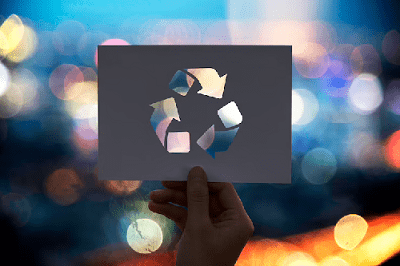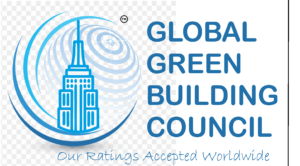Building up recycling capability refers to the process of developing, implementing, and maintaining systems and infrastructure to effectively collect, sort, process, and recycle waste materials. This can include investing in recycling facilities, equipment, and technologies, as well as training and educating individuals on the importance of recycling and how to properly sort and recycle different materials.
To build up recycling capability, it is important to first understand the types of waste that are generated in a community or region, and then develop strategies to effectively manage and recycle these materials. This can involve establishing partnerships with local waste management companies, implementing curbside recycling programs, and setting up collection points for specific materials, such as electronic waste or hazardous waste.
It is also important to educate and raise awareness among individuals and businesses about the benefits of recycling and how they can play a role in reducing waste and conserving resources. This can include public outreach and marketing campaigns, as well as training programs for businesses and institutions on how to properly manage and recycle their waste.
Overall, building up recycling capability requires a combination of investment, planning, and coordination among various stakeholders to establish a sustainable and effective waste management system.

What is Buildup Recycling Capability
Buildup recycling capability refers to the process of increasing a community’s ability to recycle waste materials effectively. It involves the development and implementation of systems, infrastructure, and practices that allow for the collection, sorting, processing, and recycling of a variety of waste materials. The goal of building up recycling capability is to reduce the amount of waste that goes to landfills and to conserve valuable resources through recycling.
To build up recycling capability, a number of steps may be taken, including:
- Conducting a waste assessment to determine the types and quantities of waste generated in a community or region.
- Investing in recycling facilities, equipment, and technologies to effectively manage and recycle different types of waste.
- Implementing curbside recycling programs and setting up collection points for specific materials, such as electronic waste or hazardous waste.
- Partnering with local waste management companies to ensure that waste is collected and processed in an efficient and environmentally-responsible manner.
- Educating individuals and businesses about the benefits of recycling and how to properly sort and recycle different materials.
- Encouraging the use of recycled materials in the production of new products to create a closed-loop recycling system.
Building up recycling capability is an ongoing process that requires continuous investment, planning, and coordination among various stakeholders, including government agencies, waste management companies, and the general public.
Who it is required Buildup Recycling Capability
Building up recycling capability is a collaborative effort that involves the participation and engagement of various stakeholders, including:
- Government agencies: Local, state, and federal governments play a crucial role in establishing policies and regulations that support recycling, as well as providing funding and resources for recycling programs.
- Waste management companies: These companies are responsible for collecting and processing waste materials, and play a key role in building up recycling capability by investing in facilities, equipment, and technologies.
- Businesses and institutions: These entities generate significant amounts of waste, and can play a role in building up recycling capability by implementing waste reduction and recycling programs within their operations.
- Consumers and the general public: Individuals can play a significant role in building up recycling capability by properly sorting and recycling their waste, and by supporting recycling programs and initiatives through their purchasing decisions.
- Non-government organizations (NGOs) and environmental groups: These organizations can raise awareness about the importance of recycling and advocate for policies and practices that support sustainable waste management.
Ultimately, building up recycling capability requires the collaboration and cooperation of all these stakeholders to create a comprehensive and effective waste management system that reduces waste, conserves resources, and protects the environment.
When it is required Buildup Recycling Capability
The need for building up recycling capability arises as communities and regions experience increasing amounts of waste, diminishing landfill space, and growing environmental concerns. Some of the key factors that drive the need for building up recycling capability include:
- Rapid population growth: As communities and cities grow, so does the amount of waste they generate, increasing the need for effective waste management and recycling solutions.
- Limited landfill space: With finite landfill space available, it is becoming increasingly important to reduce the amount of waste that goes to landfills and to find alternative ways to manage and recycle waste.
- Environmental impact: Landfills release methane, a potent greenhouse gas, and other harmful pollutants, making it crucial to reduce the amount of waste that goes to these sites.
- Conservation of resources: Recycling conserves valuable resources by reducing the need for new raw materials and reducing energy consumption.
- Economic benefits: Recycling can create jobs, reduce the cost of waste management, and provide a source of raw materials for the production of new products.
- Public demand: As public awareness and concern about environmental issues grows, so does the demand for effective recycling programs and solutions.
Therefore, building up recycling capability is essential to reduce waste, conserve resources, protect the environment, and support sustainable communities and economies. The need for building up recycling capability is ongoing and will continue to be a priority in the years to come.
Where it is required Buildup Recycling Capability
Building up recycling capability is required in communities and regions all over the world, as waste management and environmental sustainability are global challenges. Some of the key places where building up recycling capability is needed include:
- Urban areas: Cities and urban areas generate significant amounts of waste, and often have limited landfill space, making it important to develop effective recycling solutions.
- Rural areas: Rural areas may have limited access to waste management and recycling infrastructure, making it important to invest in these systems to reduce waste and conserve resources.
- Developing countries: Developing countries may have limited waste management infrastructure, making it important to build up recycling capability to reduce waste and improve environmental conditions.
- Industrial areas: Industrial areas generate large amounts of waste, including hazardous waste, making it important to implement effective recycling programs and technologies to manage these materials.
- Tourist destinations: Tourist destinations may experience high levels of waste, particularly during peak seasons, making it important to build up recycling capability to reduce waste and maintain environmental sustainability.
In summary, building up recycling capability is needed in communities and regions of all types and sizes, as it is an essential component of sustainable waste management and environmental protection.
Whom it is required Buildup Recycling Capability
Building up recycling capability is required for the benefit of everyone in a community or region, as it helps to reduce waste, conserve resources, and protect the environment. Some of the key groups that require recycling capability include:
- Residents and consumers: Individuals play a key role in building up recycling capability by properly sorting and recycling their waste, and by supporting recycling programs and initiatives through their purchasing decisions.
- Businesses and institutions: These entities generate significant amounts of waste, and can play a role in building up recycling capability by implementing waste reduction and recycling programs within their operations.
- Local government: Local government agencies play a crucial role in establishing policies and regulations that support recycling, as well as providing funding and resources for recycling programs.
- Waste management companies: These companies are responsible for collecting and processing waste materials, and play a key role in building up recycling capability by investing in facilities, equipment, and technologies.
- Environmental organizations and NGOs: These organizations can raise awareness about the importance of recycling and advocate for policies and practices that support sustainable waste management.
In conclusion, building up recycling capability is required for the benefit of all members of a community or region, as it helps to reduce waste, conserve resources, and protect the environment for present and future generations.
How to do Buildup Recycling Capability
Building up recycling capability requires a comprehensive approach that involves the participation and engagement of multiple stakeholders, including government agencies, waste management companies, businesses, individuals, and environmental organizations. Here are some steps that can be taken to build up recycling capability:
- Establish policies and regulations: Local, state, and federal governments can establish policies and regulations that support recycling and sustainable waste management, such as mandatory recycling programs, incentives for businesses and institutions, and bans on certain waste materials.
- Increase public education and awareness: Raising public awareness about the importance of recycling and how to properly sort and recycle waste is crucial for the success of recycling programs. Governments and organizations can provide educational resources, outreach programs, and campaigns to promote recycling.
- Invest in recycling infrastructure: Waste management companies, local governments, and other organizations can invest in recycling facilities, equipment, and technologies to increase recycling capability and improve the efficiency and effectiveness of recycling programs.
- Implement recycling programs in businesses and institutions: Businesses and institutions can play a significant role in building up recycling capability by implementing waste reduction and recycling programs within their operations, such as source reduction, composting, and recycling of paper, plastics, and other materials.
- Encourage consumer engagement: Consumers can play a key role in building up recycling capability by properly sorting and recycling their waste and by supporting recycling programs and initiatives through their purchasing decisions.
- Collaborate with environmental organizations: Environmental organizations and NGOs can raise awareness about the importance of recycling and advocate for policies and practices that support sustainable waste management.
In conclusion, building up recycling capability requires a comprehensive approach that involves the participation and engagement of multiple stakeholders, and involves establishing policies and regulations, increasing public education and awareness, investing in infrastructure, implementing programs, encouraging consumer engagement, and collaborating with environmental organizations.


